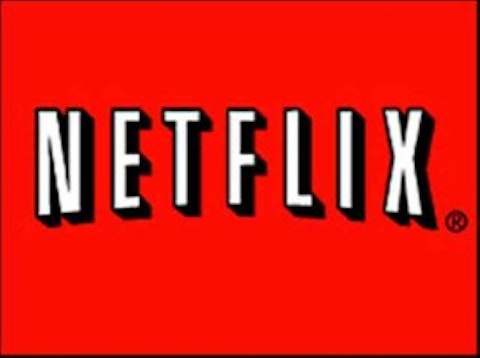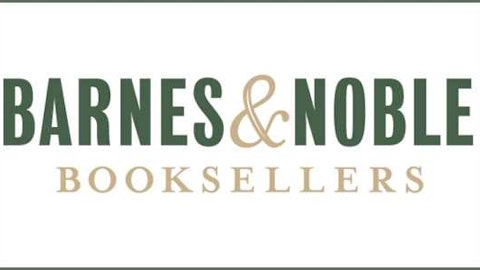
Although Netflix, Inc. (NASDAQ:NFLX) is somewhat of a competitor when it comes to online streaming, the company actually benefits from Hulu’s independence.
Cutting the cord
There’s growing evidence that cord cutting is finally starting to emerge as a potent trend. In the US there’s a group of households — Nielsen calls them Zero TV households — that don’t subscribe to cable, or even watch the free, over-the-air networks. Instead, they stick to Internet alternatives for their entertainment needs.
This group of people is still small (some 5 million households) but growing (up from 3 million in 2007). This trend is most prevalent among young adults.
And it isn’t limited to the US: In Canada, 16% of households now stream all their TV-related content online.
The rise of Internet networks
What’s fueling this trend? A weak economy probably isn’t helping — cable packages often cost $100 per month or more, and with unemployment remaining high (particularly among young adults) that’s another utility bill many households can no longer afford.
But the rise of Internet alternatives cannot be ignored. For $8 per month, Netflix provides thousands of hours of content. Sure, it might not be as high quality as a robust cable bundle, but $8 is far more affordable than $100.
And it isn’t just Netflix, Inc. (NASDAQ:NFLX). There’s the aforementioned Hulu, Amazon.com, Inc. (NASDAQ:AMZN)’s Prime Instant Video, RedBox Instant, and other alternatives.
Netflix needs a strong online content system
In the past, these other services were seen as a threat to Netflix. If you have Amazon.com, Inc. (NASDAQ:AMZN) Prime, for example, do you really need Netflix, Inc. (NASDAQ:NFLX)? But Netflix has been able to rebuke this challenge — in fact, it has arguably turned its rivals into allies.
As I’ve written previously, Netflix, Inc. (NASDAQ:NFLX) has been slowly changing its business model in recent months — from a cornucopia of broadcasters’ recycled content, to exclusive deals and original shows.
Netflix has signed deals with The Walt Disney Company (NYSE:DIS) and Fox, while paying to develop original shows like House of Cards and Orange is the New Black. Amazon.com, Inc. (NASDAQ:AMZN) has done the same. The online retailer is working to create five new, original series and has acquired exclusive rights to Viacom programming.
And while Netflix and Amazon may be investing in original content to compete with each other, in reality, they’re beginning to create a more powerful alternative to paid-TV providers.
Even if one pays for both Amazon Prime and Netflix, Inc. (NASDAQ:NFLX), that’s only $175 for a full year — a year’s worth of cable could run over five times that amount.
As for how Amazon Prime Instant Video benefits Amazon? Clearly, unlike Netflix, Amazon’s business is far more complex than just offering online video. Still, if Amazon can scoop up some cord cutters, it could gain some retail customers in the process.
Along with video programming, Amazon Prime includes free two-day shipping. Customers who buy Prime for the video might be more likely to buy some physical goods from Amazon as well.
An independent Hulu could bolster that ecosystem
In an interview with CNBC, Netflix CEO Reed Hastings said he feared an independent Hulu, more-so than an acquired company. Hastings claimed an independent company would be hungrier, and a stronger competitor.
Perhaps. Or perhaps Hastings realizes that keeping Hulu as-is benefits his company as a paid-TV alternative. As it stands right now, Netflix and Hulu have a limited overlap (Netflix, Inc. (NASDAQ:NFLX) has a deep film catalog, Hulu is all TV shows).
Again, even adding in the cost of Hulu, an Internet package of Hulu, Amazon Prime and Netflix, Inc. (NASDAQ:NFLX) would cost only $271 per year — still much less than a year of cable.
Is Hulu independent?
But it isn’t really fair to call Hulu an independent company. Comcast, The Walt Disney Company (NYSE:DIS) and Fox control the online streaming service. Still, keeping the status quo might’ve been better than some of the potential suitors.
For example, DirecTV (NASDAQ:DTV) submitted a bid to buy the company, which is interesting, given how exposed the satellite TV provider is to the online alternatives. Nearly all of DirecTV’s revenue comes from its 20 million paying TV subscribers, and a meaningful loss of subscribers would devastate the company.
A company like Comcast is somewhat protected because of its Internet service. In theory, if there was a meaningful move away from paid-TV, Comcast could simply raise the cost of its Internet services to offset declining TV revenue. DirecTV (NASDAQ:DTV) doesn’t have this luxury.
DirecTV (NASDAQ:DTV) could’ve used Hulu to hedge itself against the rise of Internet alternatives — or it might’ve just shut the service down (or fundamentally changed it past the point of recognition). Getting rid of an online competitor could help to keep its business model viable.
There’s reason to be bullish on DirecTV in the near-term (namely, a possible takeover bid from DISH Network), but in the long-run, a company that relies exclusively on traditional paid-TV is exposed to cord cutting.
Netflix shareholders should be pleased
The decision by Hulu’s owners to keep the company should be welcomed by Netflix, Inc. (NASDAQ:NFLX) shareholders. With original shows and exclusive deals replacing the old business model of run of the mill, recycled content, the online video providers are shifting from competitors to compliments.
A strong, independent Hulu, combined with a Netflix and Amazon Prime subscription, could be a potent alternative to traditional paid-TV packages.
The article Netflix Benefits From an Independent Hulu originally appeared on Fool.com and is written by Salvatore “Sam” Mattera.
Joe Kurtz has no position in any stocks mentioned. The Motley Fool recommends Amazon.com, DirecTV, and Netflix. The Motley Fool owns shares of Amazon.com and Netflix. Salvatore “Sam” is a member of The Motley Fool Blog Network — entries represent the personal opinion of the blogger and are not formally edited.
Copyright © 1995 – 2013 The Motley Fool, LLC. All rights reserved. The Motley Fool has a disclosure policy.





